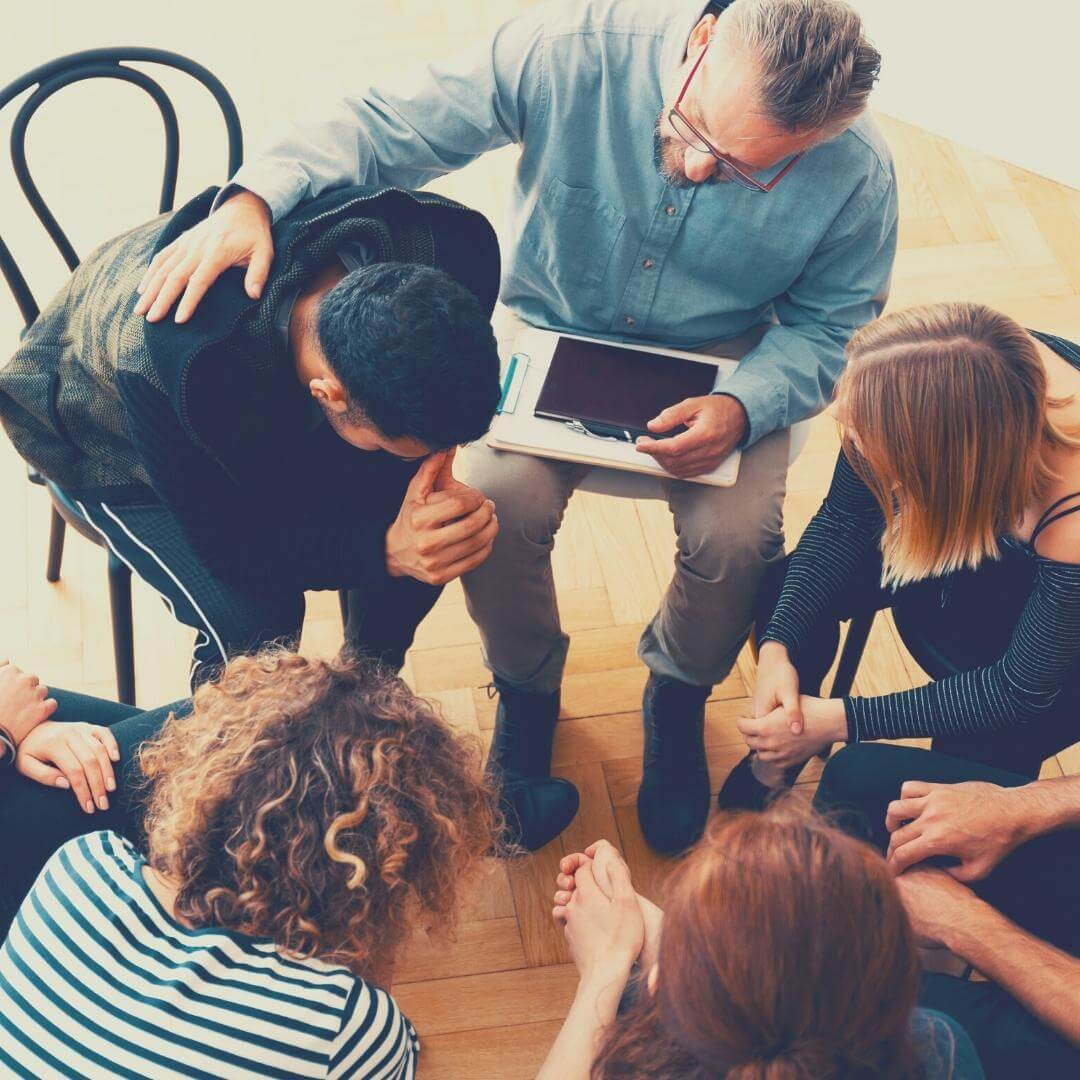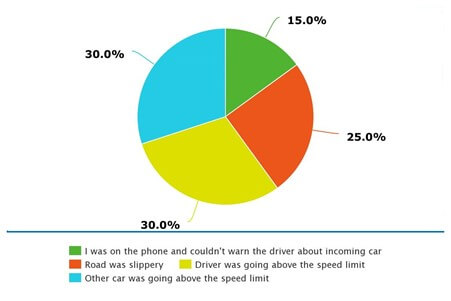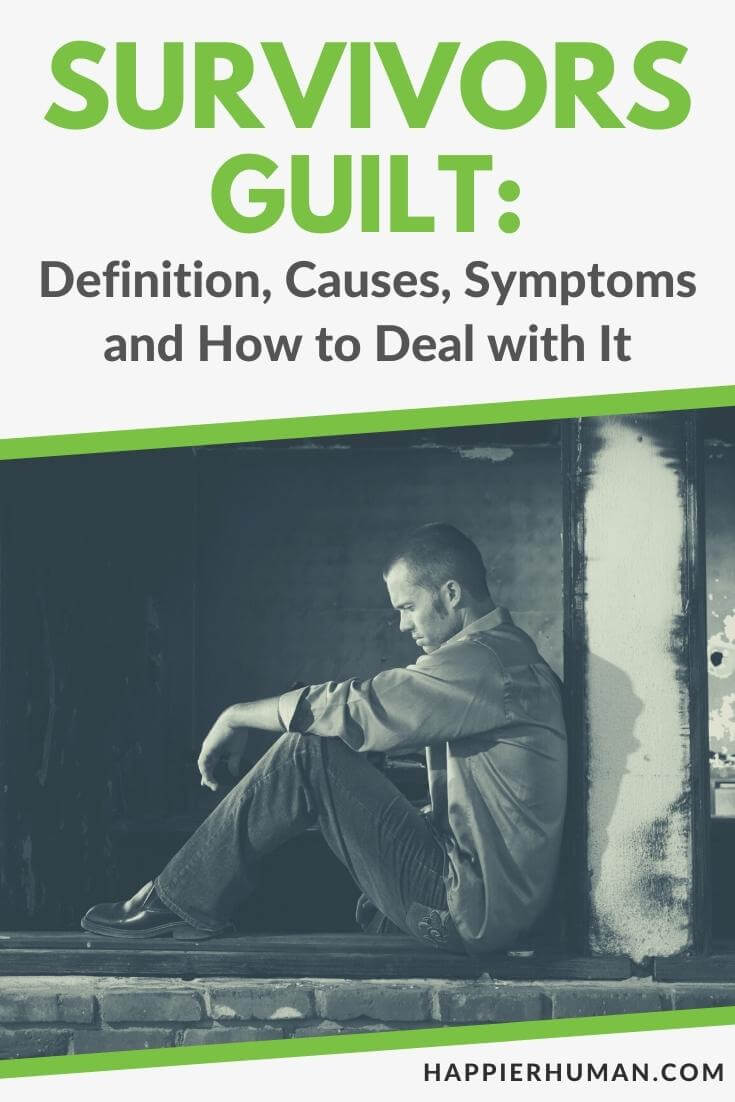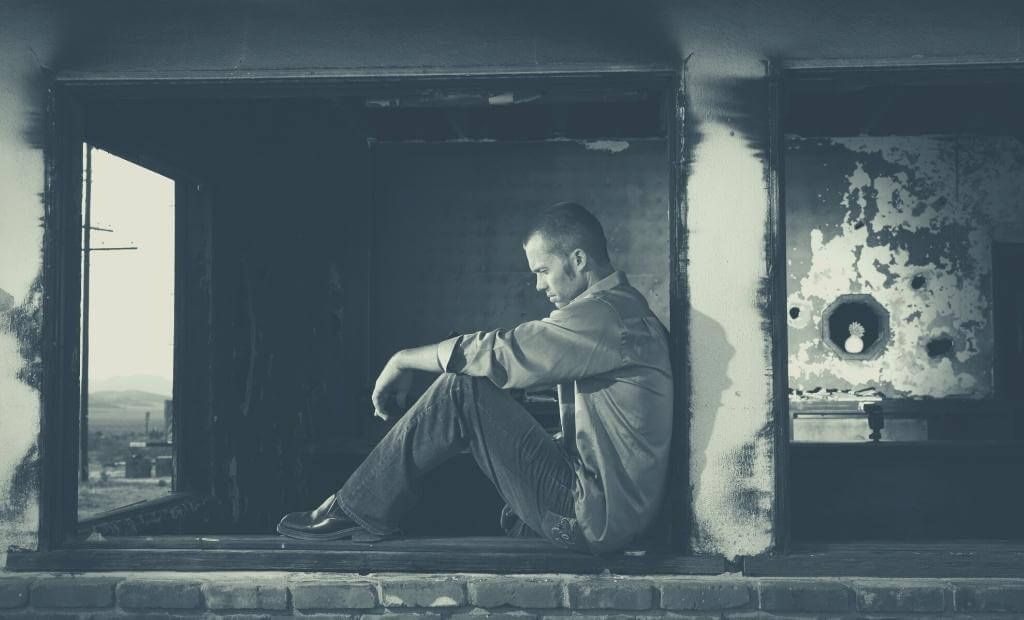We like to think that when tragedy strikes, those who survive should count their lucky stars for not being among the ones who were less fortunate.
That’s not always the case.
When dealing with tragedy, there’s no telling how you might react.
Maybe you feel grateful that you survived, grieve those who didn’t, and try to move on with your life.
But as the emotional storm settles, you might wonder about how the tragedy could have been avoided or how you could have done more for those who didn’t make it.
Perhaps there was someone who lost his life saving yours or someone who didn’t receive help because the first response team was busy aiding you.
In hindsight, it’s always easy to identify a million ways tragedy could have been avoided.
Unfortunately, the more you go down this road, the easier it is to find reasons to feel guilty.
Survivor’s guilt is the silent, often unspoken aspect of trauma.
What is Survivor’s Guilt?
The first documented cases of survivor’s guilt were after the Holocaust, when mental health professionals noticed that some survivors experienced profound feelings of guilt.
Another historical event which triggered survivor’s guilt among those who lived through it was the AIDS epidemic. [1]
In essence, this particular form of guilt occurs in people who’ve been through a traumatic event or witnessed a tragedy and somehow managed to survive or escape relatively unharmed.
For example, if you were involved in a car accident where other passengers lost their lives or were severely injured, you might blame yourself for not saving them or feel guilty for escaping unharmed.
The more you ruminate on how this tragedy could have been avoided, the more you sink into feelings of sadness and remorse.
The more you lose yourself in regrets and “what ifs,” the more you hate yourself
Survivor’s guilt isn’t a mental health condition per se but a manifestation of post-traumatic stress disorder.
If left untreated, survivor’s guilt could result in severe emotional distress, suicidal thoughts [2], and poor quality of life.
Survivor’s Guilt and Hindsight Bias
One crucial element people with survivor’s guild seem to share is hindsight bias.
In other words, tragedies like war, natural disasters, pandemics, and accidents cause severe individual and collective trauma.
Since humans are naturally inclined to look for explanations, you may find yourself ‘rewinding the tape’, hoping to make sense of all that loss, pain, and suffering.

Doing so makes you feel like you should have somehow predicted the event, so you overestimate your ability to foresee how the catastrophe unfolded.
The sense of relief that you might have experienced after the tragedy fades away, while shame and guilt take hold of you as you struggle to find a reason why you survived and others didn’t.
Long story short, hindsight bias can throw you into a spiral of self-hatred and prevent you from processing traumatic experiences reasonably and healthily.
What Causes Survivor’s Guilt?
To better understand the complex causes behind survivor’s guilt, we need to look at two different sets of factors.
First, you have a potentially traumatic experience in which you are directly or indirectly involved.
Some examples of catastrophes which may set the stage for survivor’s guilt are:
As I mentioned, survivor’s guilt sets in weeks after a tragic event from which you somehow escaped relatively unharmed.
Being among the few who survive a severe form of cancer [3] or the only one to escape from a burning building are two examples of situations where you may experience guilt and shame.
It’s also important to note that first responders such as police officers, firefighters, or ER doctors [4] are at risk of developing survivor’s guilt.
But not everyone involved in a tragic event will develop survivor’s guilt.
This brings us to our second set of factors – past experiences and current mental health status.
Factors Which Contribute to the Onset of Survivor’s Guilt
The extent to which you may or may not develop survivor’s guilt depends on past experiences and underlying mental health issues.
1. Previous traumatic experiences
We know that traumatic childhood experiences can leave emotional scars for the rest of your life.
A study involving domestic violence victims revealed that people with a history of trauma are more likely to experience guilt when exposed to potentially traumatic experiences. [5]
Simply put, having dealt with trauma means you’re more likely to encounter difficulties when faced with a new traumatic experience.
2. Depression and low self-esteem
When dealing with tragedy, any underlying mental health issue represents a potential vulnerability that hinders your ability to cope.
For instance, if you’re dealing with depression, you might not have the internal resources necessary to process tragedy healthily.
Another good example is low self-esteem. In other words, lacking confidence in who you are and what you can do, makes it difficult to survive a critical situation without attributing too much responsibility to yourself.
The more you doubt yourself, the easier it is to find reasons to blame yourself.
3. Unhealthy coping skills and lack of social support
Although some may be stronger (mentally and emotionally) than others, no one is unbreakable.
When faced with tragedy, regardless of whether you were a victim or witness, you need time and support to recover and process the event.
Unfortunately, many who fail to process such events resort to alcohol and drugs to cope with the painful emotions associated with trauma.
On top of that, social isolation is also an issue among people with PTSD and survivor’s guilt.
Long story short, regardless of how resilient you are, a solid support group can go a long way when processing a traumatic experience.
What are the Main Symptoms of Survivor’s Guilt?
Since survivor’s guilt is closely tied to PTSD, most symptoms accompanying these conditions are relatively similar.
In most cases, symptoms are both physical and psychological and can include:
Depending on the severity of the symptoms and how much they impede your day-to-day functioning, treatment options can range from medication to psychotherapy and support groups.
7 Steps to Deal with Survivor’s Guilt
1. It’s normal to feel this way
The most soul-crushing aspect of survivor’s guilt is the constant rumination that throws you into a spiral of profound shame.
You hold yourself responsible for all those who may have been gravely injured or lost their lives, and because you survived, you believe you deserve to carry this burden.
The biggest problem with shame is that it keeps you talking to other people and getting a different perspective.
And so, you continue to find reasons to blame yourself for not doing more to save others.

To a certain extent, it’s absolutely normal to wonder if you could have done more to rescue others. Any person who’s compassionate enough to see beyond their interests would feel that way.
But when you’re holding yourself (and no one or nothing else) responsible for the tragedy, nothing good will come out of this mindset.
Just because you experience guilt doesn’t mean you’re guilty.
2. Allow yourself to grieve
In essence, grief is a process that allows you to express the emotional pain associated with tragedy and loss.
I think it’s vital to remember that you don’t have to know someone personally to mourn their passing.
And that’s because grieving isn’t something we do entirely for the one who’s suffered or passed away.
It’s also something we do for ourselves; a process we go through to integrate a painful experience and reach a sense of closure.
Long story short, even if the people with whom you took part in a tragic event were strangers, it’s perfectly normal to mourn their suffering or passing.
3. Cultivate self-compassion and acceptance
When it comes to survivor’s guilt, the constant feeling of shame, remorse, and self-loathing is fueled by a narrative you keep repeating.
In other words, you hold yourself responsible; and because others didn’t make it (or suffered gravely), you don’t feel it’s “right” to move on with your life.
You keep telling yourself:
“I should have done more”
“I should have known better”
“Why didn’t I think of…”
“It’s my fault that…”
“It should have been me instead of…”
But just because others passed away or had it worse than you doesn’t mean you should punish yourself by holding on to your share of pain and suffering.
Perhaps it’s too late to do something about what has already happened, but there’s plenty you can still do for yourself and those who survived.
But start by giving yourself a bit of compassion.
4. Practice grounding exercises
This one is a practical tip that will help you remain anchored in the present whenever your mind drifts towards rumination and “what ifs”.
In a nutshell, grounding refers to actions that facilitate a shift in focus, allowing you to break the never-ending cycle of rumination.
You ground yourself into the present moment by shifting your attention towards something you see, touch, hear, smell, or taste.
Some examples of grounding activities include walking on grass barefoot, folding a paper airplane (or doing origami), or eating a tasty cookie.
You will be amazed by how something as simple as smelling a flower can help you ruminate less and live more.
5. Pinpoint outside factors that have caused the tragedy
A crucial part of overcoming survivor’s guilt is adjusting your perspective on the tragedy you witnessed or went through.
That means putting aside the things that could have been done to prevent it and pinpointing the factors that have caused it.
One way you can do this is by making a pie chart and adding as many external factors as possible.
Let’s say you were involved in a car accident, and even though you were sitting in the front passenger seat, you blame yourself for not doing something to prevent this tragedy.
Here’s an example of how you can reframe the situation by taking into account different factors that have contributed to the car accident:

To unload the burden of excessive responsibility, you need to take a step back and look at the situation more objectively.
You’ll discover that many of the factors that caused a tragedy were out of your control.
6. Join a support group and share your story
Sometimes, the best way to gain a different perspective is by talking to other people.
Not just anyone, but people who went through similar situations and can share their journey towards recovery.
In my opinion, support groups (either live or online) are a valuable resource, especially for those who might not afford individual therapy.
Aside from getting a fresh perspective on things, support groups are also an excellent place to unload some of the guilt and shame weighing on your mind.
7. It’s okay to need specialized help
Like PTSD, survivor’s guilt is a severe mental health issue that can have devastating effects if left unchecked.
From depression and anxiety to chronic self-loathing and suicidal ideation, the complications that may develop in time can severely damage your personal life, relationship, and career.
If you feel like you can’t cope with survivor’s guilt alone, the best course of action is to consult a mental health professional.
With the help of therapy sessions, support groups, and medication, you can manage the symptoms associated with this condition and gradually work your way towards peace and well-being.
Final Thoughts on Survivor’s Guilt
In a nutshell, survivor’s guilt is triggered by a tragic event in which you were either involved as a victim or rescuer.
Since guilt, shame, and obsessive thoughts about the event are at the core of this condition, many experts believe it’s not that far from post-traumatic stress.
Just remember that:
Sometimes, pain and tragedy are inevitable, but we can always find the resilience overcome adversity and make the best out of what life throws down our path.
References
| [1] | F. F. Boykin, “The aids crisis and gay male survivor guilt,” Smith College Studies in Social Work, vol. 61, no. 3, pp. 247-259, 1991. |
| [2] | J. C. Tripp and M. E. McDevitt-Murphy, “Trauma-Related Guilt Mediates the Relationship between Posttraumatic Stress Disorder and Suicidal Ideation in OEF/OIF/OND Veterans,” Suicide and Life-Threatening Behavior, vol. 47, no. 1, pp. 78-85, 2016. |
| [3] | S. Glaser, K. Knowels and P. Damaskos, “Survivor guilt in cancer survivorship,” Social Work in Health Care, vol. 58, no. 8, pp. 764-775, 2019. |
| [4] | P. T. Clements, L. Garzon and T. F. Milliken, “Survivors' Guilt Following Sudden Traumatic Loss: Promoting Early Intervention in the Critical Care Setting,” Critical Care Nursing Clinics, vol. 18, no. 3, pp. 359-369, 2006. |
| [5] | A. E. Street, L. E. Gibson and D. R. Holohan, “Impact of childhood traumatic events, trauma-related guilt, and avoidant coping strategies on PTSD symptoms in female survivors of domestic violence,” Journal of Traumatic Stress, vol. 18, no. 3, pp. 245-252, 2005. |

Alexander Draghici is a licensed Clinical Psychologist, CBT practitioner, and content writer for various mental health websites. His work focuses mainly on strategies designed to help people manage and prevent two of the most common emotional problems – anxiety and depression.


